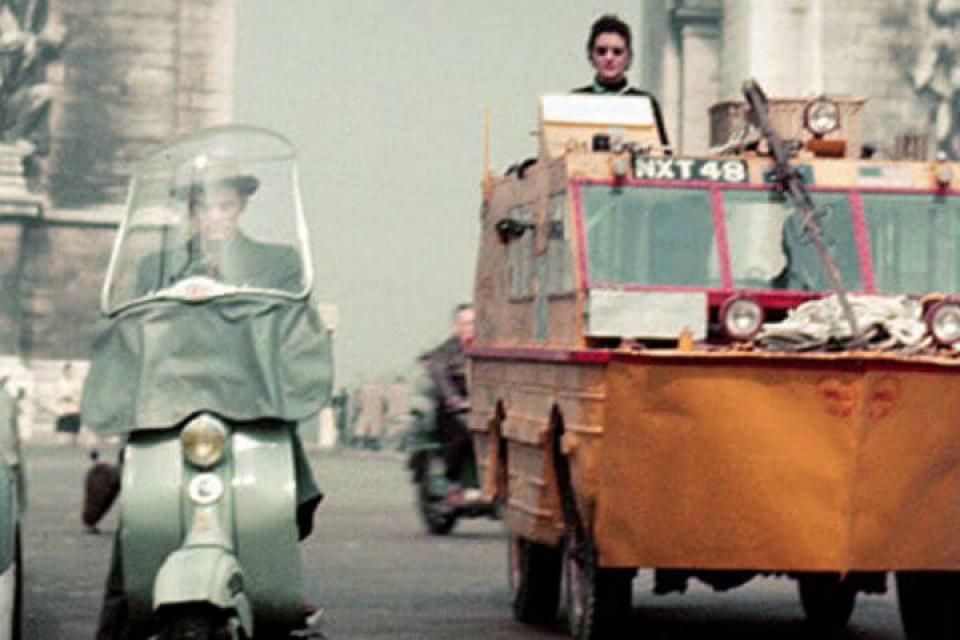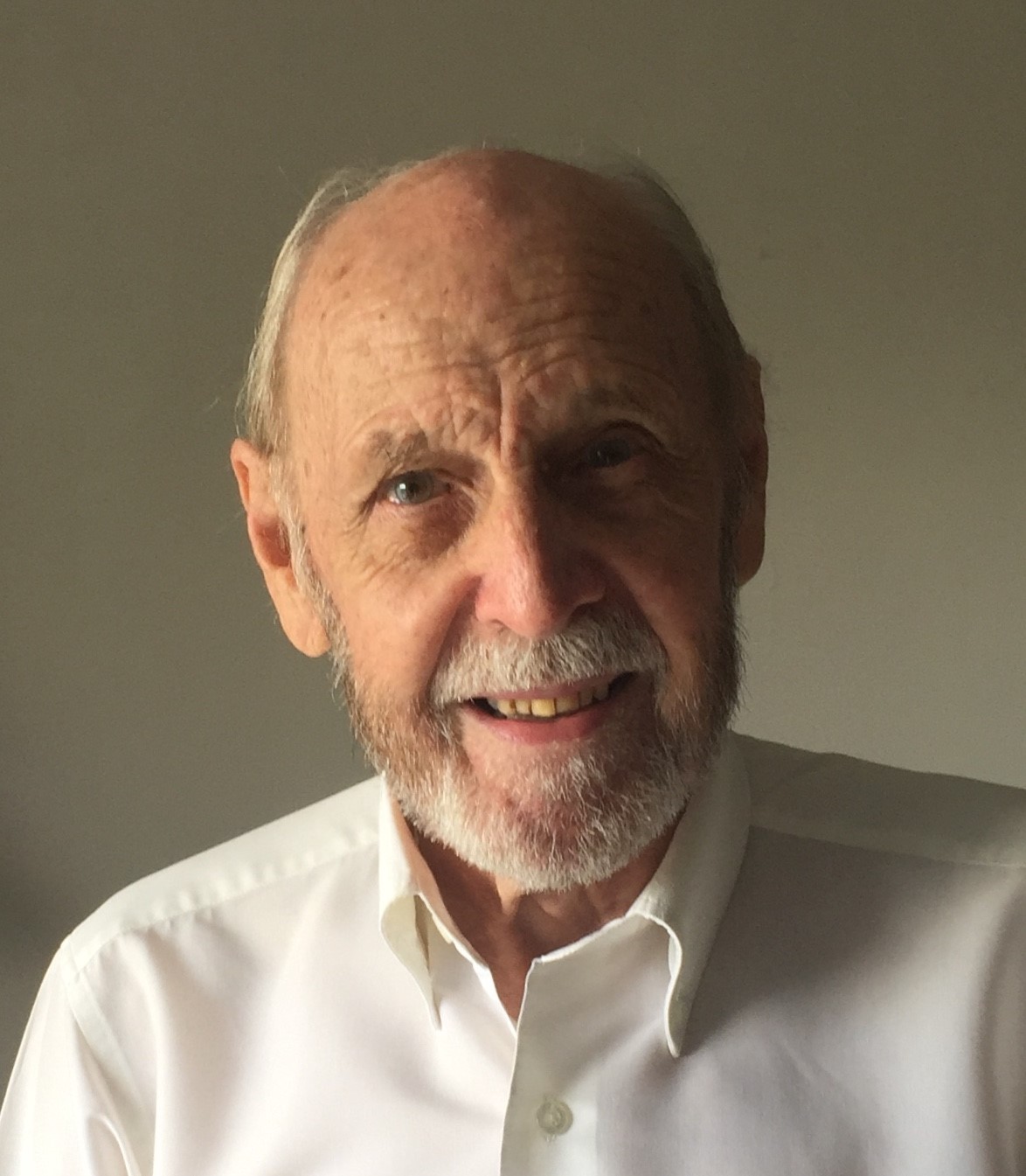
Leaving New York City in 1948
By Gordon Bass a regular contributor for The Starfish
In May 1958, a strange, battered yellow vehicle rumbled into downtown Montreal. It looked like a small boat with a boxy cabin and knobby tyres. A man with a gray beard gripped the steering wheel, fatigue and resolve on his face. People watching from sidewalks shrugged at the curiosity, and then went about their business.
They didn’t know they were witnessing the end of one of the most extraordinary adventures of the 20thcentury.
Ben Carlin had just completed a grueling, death-defying journey around the world, crossing oceans and continents in a small amphibious army jeep he called Hafe-Safe. It had taken 10 years, and it had nearly killed him.
Most Australians have never heard of Ben, whose brief fame began to fade before his journey was over. So why did an American end up writing a book about him?

It began when I found a copy of Ben’s own book, which he’d written in 1955 after crossing the Atlantic. I was fascinated by the story of surviving storms, circling sharks and the shortcomings of a 54-horsepower engine taxed by the journey and elements.
But the book raised some questions: What had Ben done next? And how did he know my grandfather Robert Bass, whose name jumped out at me from one of the pages?
I’d stumbled upon an extraordinary journey, and a family connection.
Ben was born in Northam in 1912, grew up in Western Australia, attended Guildford Grammar School, and eventually served as an officer in the Indian Army during World War II. Then, just after the end of the war, he first saw the vehicle that would change his life.
The Ford GPA amphibious jeep was an experimental vehicle designed and built for the American military during World War II. Ford took the basic army jeep and essentially dropped it into a flimsy boat shell made of stamped steel. A propeller jutted out the back. In theory, this half jeep, half boat could travel over both land and water. In practice it wasn’t good at either. Few were built.

Ben Carlin in Tokyo, 1957
But the jeep captured Ben’s imagination. And because Ben liked to take on the impossible and unusual, he decided immediately that he was going to circle the world in one. For the rest of his life people asked him why. Ben’s usual answer was, why not?
In 1946 Ben went to the States and found a surplus Ford GPA near Annapolis, Maryland. He moved into a rented room and spent the next year preparing the jeep for the journey, building a rudimentary cabin over the cockpit and adding enough fuel tanks to travel across ocean expanses.
The Basses lived around the corner. My grandfather taught English literature at the United States Naval Academy in Annapolis. My dad was a 14-year-old kid. They both fell into Ben’s charismatic orbit.
My grandfather taught Ben to operate the jeep’s two-way radio, and that earned him thanks in Ben’s book.
And on summer afternoons, my dad used to watch Ben working under the shade of a tree. He looked like a movie star, my dad told me, with a mysterious scar across his face, a Lucky Strike at his lip and a shock of blond hair across his forehead.

While he worked, Ben described his plan to cross the Atlantic and Pacific in the jeep. My dad thought it sounded dangerous, but Ben explained that his tiny vehicle would bob like a cork over the stormiest seas.
“He said with annoyance that no one would ever do anything if they just worried about everything,” my dad recalled.
My dad took it all in, and it helped shape the trajectory of his life. He became an archaeologist. Then he decided it would be possible to study ancient shipwrecks on the seabed just like sites on land. He found and excavated the world’s oldest shipwreck off the coast of Turkey, dived on the Titanic, and was awarded the National Medal of Science at the White House. TIME magazine called him an underwater Indiana Jones.
Ben was part of it. Later in his career, my dad pointed back to those afternoons when the West Australian had opened his eyes to a wider world and helped spark a sense that anything was possible. That’s part of why I wrote a book about him – because through my dad and his career, Ben had an impact on my own life.
In researching the book, I found there was more to Ben’s story than just adventure and the skill and physical endurance necessary to survive ranging oceans, scorching deserts and dense jungle. There was an obsession that Ben himself never quite understood. In Alaska a reporter asked Ben why he kept going, and Ben snarled, “Why not? If you don’t mind my saying so, that’s a foolish question.”

Author Gordon Bass
Over the years he alienated the media and friends and family and lovers. That’s part of why his fame faded so soon.
Ben crossed paths my father for the last time in 1969 at a pub in Cambridge, England. My dad could see that his health was failing and winced when Ben ordered a steak with “extra fat.”
I don’t remember meeting Ben that day. I was just two years old.
But Ben, who died in 1981 in Perth, deserves to be remembered – as an adventurer, an inspiration, and as a pure manifestation of willpower and endurance whose circumnavigation still holds a Guinness World Record, nearly 60 years after its completion.
“He did fulfill his dream, out of sheer determination,” my dad once said to me. “How many people have done that?”
The Last Great Australian Adventurer by Gordon Bass is in bookstores now.

Ebury Press Book – Published by Penguin Random House Australia Pty Ltd (RRP $34.99)












